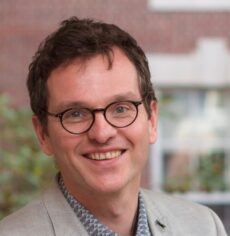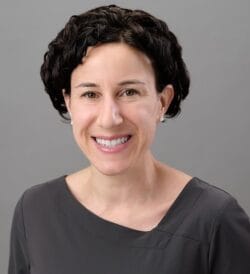
Henning Tiemeier, MA, MD, PhD
Harvard University
Henning Tiemeier is a Professor of Social and Behavioral Science and the Sumner and Esther Feldberg Chair in Maternal and Child Health at the Harvard T.H. Chan School of Public Health. He received both his medical and his sociological degree from the University of Bonn, Germany, and his PhD from the Erasmus University in Rotterdam, Netherlands. Tiemeier is a psychiatric epidemiologist who studies child development in population-based cohort studies. Much of his work takes a neurodevelopmental approach and his group conducted large scale brain imaging studies in children and adolescents. Recent work shows how parenting and environmental risk factors relate to brain development in childhood and pre-adolescence. Other studies highlight methodological problems in child psychiatric research using multi-informant assessments or causal inference approaches. His multidisciplinary work combining epidemiology, genetics, brain imaging, and child development bridges historically separate disciplines and forms Population Neuroscience. He has received NIH funding to establish the Mississippi Delta Center of Excellence in Maternal Health to conduct a trial to improve maternal morbidity; his team established a longitudinal study of children of incarcerated mothers. Tiemeier has received several honors among which the 2017 Dutch VICI prize, the 2019 Leon Eisenberg Award, and the 2023 Alzheimer Award.
Councilor at Large

Oscar Jimenez-Solomon, PhD, MPH
New York State Psychiatric Institute, Columbia University Medical Center
Oscar Jiménez-Solomon is a mental health and social policy researcher dedicated to addressing inequities in mental health by focusing on the social determinants of mental health. His work integrates quantitative and qualitative research, the development of multisectoral interventions, and the meaningful involvement of lived experience experts. Oscar holds a PhD in Social Policy from Columbia University School of Social Work, a Master of Public Health from Columbia University Mailman School of Public Health, and a Bachelor in Sociology from the Pontifical Catholic University of Peru. Since 2013, Oscar has served as a Research Scientist at the New York State Psychiatric Institute (NYSPI), Columbia University Medical Center. In the summer of 2024, he was appointed Assistant Director of the New York State Center of Excellence for Cultural Competence (NYSPI-CECC). At NYSPI-CECC, Oscar leads a study funded by the American Foundation for Suicide Prevention to develop and test a peer-led financial empowerment intervention aimed at reducing financial hardship and suicide risk. He also spearheads a research team advising the New York State Suicide Prevention Task Force in preparing programmatic and policy recommendations to address the clinical and social needs of disproportionately affected populations. In 2022, Oscar also joined the NYSPI Mental Wellness Equity Center, where he leads the development of a community-based intervention to address financial hardship as a critical social determinant of mental health. Oscar is also a research scientist affiliate at the Columbia Center on Poverty and Social Policy (CPSP), where he conducts studies to improve the measurement of important social constructs in the epidemiology of mental disorders, such as poverty, and to better understand that longitudinal dynamics between income, material hardship, and psychological distress. With over 20 years of experience, Oscar has led or collaborated on research, program development, and policy initiatives in the United States, Peru, the Dominican Republic, and Chile. His previous roles include serving as Director of Economic Development at the Alliance for Rights and Recovery (formerly New York Association of Psychiatric Rehabilitation Services), Officer of Research at the Mailman School of Public Health, Research Associate at the Pontifical Catholic University of Peru, and International Consultant at the United Nations Population Fund (UNFPA) Latin American Division. Oscar is a member of the New York State Suicide Prevention Council (2019–present) and a Board Member (2017-present) and Vice-Chair (2019-2020) of the National Disability Institute, a national organization dedicated to improving the financial well- being of people with disabilities. He is also a member of the Family and Culture Special Interest Group of the World Association of Cultural Psychiatry. Oscar was a board member (2014-2019) and treasurer (2016-2019) for the American Association of Hispanic Psychiatry Board of Directors. He has keynoted and spoken at national and international conferences, and assisted in the organization of scientific conferences, V World Congress of Cultural Psychiatry (2018, New York City). Oscar’s work has received funding support from national and international entities such as the American Foundation for Suicide Prevention, National Alliance on Mental Illness (NAMI), Syracuse University Burton Blatt Institute, United Nations Population Fund, Great Britain Department for International Development, Peruvian Ministry of Health, United States Agency for International Development, and the Ford Foundation. He has authored or co-authored numerous peer-reviewed articles, book chapters, government reports, empowerment tools, and training manuals for mental health professionals in the United States and Latin America. Statement of Interest As a social science researcher dedicated to addressing inequities in mental health through research, social interventions, and policy, I am excited about the opportunity to join the American Psychopathological Association (APPA) Council. Although I am a relatively new APPA member, I have quickly come to appreciate the organization’s commitment to fostering rigorous research, promoting diversity and equity, and embracing the contributions of multiple scientific disciplines. I bring expertise in the social determinants of mental health and the inclusion of people with lived expertise in psychopathology research, as well as experience serving on boards and special interest groups of national organizations, including the National Disability Institute, the American Society for Hispanic Psychiatry, and the World Association of Cultural Psychiatry. Additionally, I have experience organizing scientific conferences and am deeply committed to advancing diversity, equity, and inclusion. Currently, I serve as a member of the Program Committee for APPA’s 2025 Annual Meeting. As an incoming Council Member-at-Large, I would be thrilled to support the efforts of the Diversity, Equity, Inclusion, Accessibility, and Belonging Committee and contribute to the continued growth and impact of APPA in the years ahead.

Alexandra Restrepo Henao, MD, PhD,
I am a physician with a Ph.D. in epidemiology from Columbia University. Currently, I serve as a professor at the University of Antioquia in Colombia and as a researcher at the City University of New York within the Center for Innovation on Mental Health. With 18 years of experience, I have focused my research on trauma and its significant impact on mental health, particularly among children and adolescents in violence-exposed regions. I have dedicated my career to developing and evaluating programs to prevent externalizing and internalizing problems in young people. My research employs innovative causal inference and implementation science methods. Additionally, I have served as the director of graduate programs at the School of Public Health at the University of Antioquia and led the research cluster on violence and mental health. Statement of Interest As a physician with a Ph.D. in epidemiology from Columbia University, I bring a unique blend of academic and practical experience to the table. My current roles as a professor at the University of Antioquia in Colombia and a researcher at the City University of New York within the Center for Innovation on Mental Health have equipped me with 18 years of experience. My research, which focuses on trauma and its impact on mental health, particularly among children and adolescents exposed to violence and conflict, has led to the career and development of innovative programs to prevent externalizing and internalizing problems in young people. I am deeply committed to the mission of the APPA and am incredibly eager to contribute to its advancement. My particular interest lies in contributing to committees focused on Diversity, Equity, Inclusion, Accessibility, and Belonging. My extensive experience in researching and teaching minority and vulnerable populations equips me to bring valuable perspectives to the Council. I am confident that my knowledge and leadership in conducting research and leading teams can contribute innovative and enthusiastic viewpoints to the association. I am dedicated to promoting a culturally sensitive approach to psychopathology and the association’s activities, with the aim of attracting a more diverse population. I also plan to enhance the international perspective on psychology and psychopathology in global mental health research and among service providers. In summary, I am eager to bring my experience, leadership, and commitment to cultural sensitivity to the APPA, fostering inclusivity and global perspectives that advance the association’s mission and broaden its impact on mental health research and practice.

Emma K. Stapp, PhD, MHS
I am an Assistant Research Professor of Epidemiology at the George Washington University Milken Institute School of Public Health, affiliated faculty in the GW Institute for Brain Health and Dementia, and Director of the Healthspan Lab. I completed my PhD and MHS in psychiatric epidemiology at the Johns Hopkins Bloomberg School of Public Health and postdoctoral training at the National Institute of Mental Health Intramural Research Program. My long-range vision is to contribute to the restoration of healthspan of persons experiencing or at risk for mood disorders, particularly bipolar disorder, and to generate insights and scalable approaches more broadly in the population. In pursuit of that, my work is focused on fundamental processes influencing the development, maintenance versus recovery, and consequences of neuropsychiatric conditions, and, increasingly, interventions—both non-pharmacologic and pharmacologic—with potential to promote recovery and prevent or reduce excess morbidity and mortality linked to neuropsychiatric dysregulation. Statement of Interest APPA’s annual meeting was the first conference I attended as a doctoral student in the T32 Psychiatric Epidemiology Training Program at Johns Hopkins. I think of it as my home conference and am always excited to see the one-of-a-kind programs each year, created by leaders in the fields that contribute to this society. Service is a cornerstone of my belief system, which is why I previously served as Co-Chair of the NIMH Fellows Committee, Departmental Representative in the Johns Hopkins Doctoral Student Council, and Vice President of the Johns Hopkins Mental Health Student Group, and am now interested in serving APPA as a Councilor At-large. In all phases and sectors of my career (academic, government, clinical research, legal), I have been a liaison across interested and affected parties in multinational projects as well as managed or mentored staff or trainees of different abilities, identities, and backgrounds, positioning me to contribute to society operations as a Councilor At-large for APPA.
Membership Chair

Natalie Slopen, ScD
Natalie Slopen's Bio:
I am an Associate Professor in the Department of Social and Behavioral Sciences at Harvard T. H. Chan School of Public Health. My research blends social and psychiatric epidemiology, with a focus on child development, life course theory, and health equity. By integrating these perspectives, I am particularly interested in identifying modifiable social and structural determinants of health inequities to inform intervention priorities addressing racial, ethnic, and socioeconomic disparities in children’s well-being. I serve as a mentor to students and postdoctoral researchers and I have experience working as a part of large and complex projects that bring together interdisciplinary researchers at diverse levels of training (e.g., from 2021-2024, I served as the co-Chair of the Diversity, Equity, and Inclusion Coordinating Committee for the Healthy Brain and Child Development Study). Statement of Interest I am interested in serving as the Membership Chair for the American PsychoPathological Association (APPA) as professional service to the field of psychopathology, and because I am commitment to advancing research and collaboration in this area. Serving on the APPA Council would allow me to leverage my experience in academia and other professional organizations to enhance member engagement, foster community, and promote the exchange of innovative ideas among the diverse membership. I am particularly interested in supporting initiatives that will enhance equity and inclusion, aiming to broaden our membership base and ensure that APPA is a welcoming organization to all researchers focused on understanding and addressing the complexities of mental health.